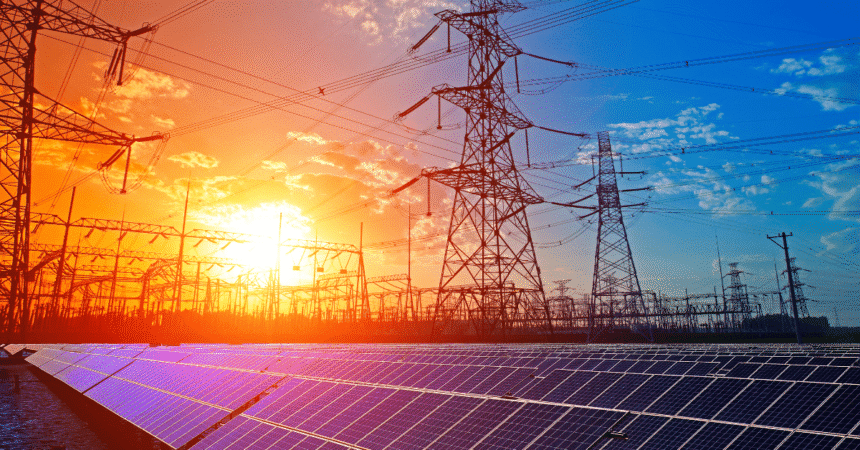In a significant development for its economy and energy landscape, Bhutan has signed a groundbreaking agreement with India’s Reliance Group to develop 1,270 megawatts of renewable electricity projects. This partnership comes at a crucial time for the tiny Himalayan nation, which seeks to leverage its abundant natural resources to become an energy-exporting powerhouse while addressing pressing socio-economic challenges.
Bhutan’s Energy Landscape
Bhutan is known for its stunning landscapes and rich natural resources, primarily hydropower, which constitutes over 99 percent of its energy generation capacity. The country has an installed capacity of 2,444 megawatts, mainly from hydropower plants, making it one of the leading producers of renewable energy in South Asia. This potential has enabled Bhutan to export surplus energy to neighboring India, meeting the latter’s growing demand for power, particularly during peak consumption periods.
Despite its wealth in energy resources, Bhutan grapples with high unemployment rates, especially among the youth. This challenge has driven many young Bhutanese to seek opportunities abroad, raising concerns about brain drain and its implications for the nation’s future. To combat this trend, the Bhutanese government has actively sought foreign investments, focusing on initiatives that can stimulate economic growth and create jobs.
Details of the Agreement
The agreement with Reliance Group involves the development of two major renewable energy projects: 770 megawatts of hydropower and 500 megawatts of solar energy. Ujjwal Deep Dahal, the chief executive of Bhutan’s state-owned Druk Holding and Investments (DHI), highlighted the significance of this partnership, stating, “Bhutan is rich in energy resources, and India’s demand makes this partnership even more crucial.” This collaboration not only strengthens Bhutan’s energy capacity but also deepens economic ties with India, Bhutan’s largest trading partner.
The hydro project, known as Chamkharchhu-1, is expected to significantly enhance Bhutan’s hydropower capabilities. Although specific financial details and timelines for project completion have yet to be disclosed, the commitment to expanding solar energy is notable, as Bhutan seeks to diversify its energy mix. The solar plant is anticipated to become operational within two years, contributing to both local consumption and export.
Strategic Economic Partnerships
The signing of this renewable energy deal fits into a broader strategy by Bhutan to attract foreign investments that drive economic growth. The Gelephu Mindfulness City, a special economic zone, is one of the flagship projects aimed at promoting economic activity in Bhutan. This initiative seeks to attract foreign companies, particularly in sectors that can utilize the country’s abundant and cost-effective renewable energy, such as data centers and artificial intelligence.
Reliance Group, led by Indian billionaire Anil Ambani, is poised to become a significant player in Bhutan’s energy sector. Ambani expressed optimism about the partnership, stating, “We hope to become the largest Indian player in Bhutan, contributing to a greener future.” His remarks underscore Reliance Group’s commitment to supporting Bhutan’s ambitions while addressing the energy needs of India’s growing population, which exceeds 1.4 billion.
The Role of Hydropower and Solar Energy
Hydropower has long been the backbone of Bhutan’s energy strategy, but the growing global focus on sustainability and the adoption of renewable energy technologies have prompted the country to explore alternative sources, particularly solar energy. The integration of solar projects into Bhutan’s energy framework reflects a broader trend in renewable energy diversification.
Solar energy offers numerous advantages, including reduced dependency on hydropower, which can be susceptible to seasonal variations in water availability. By investing in solar infrastructure, Bhutan can create a more resilient and balanced energy portfolio. Furthermore, the synergy between hydropower and solar energy can provide a steady energy supply, enhancing the reliability of Bhutan’s energy exports.
Economic and Environmental Benefits
The collaboration with Reliance Group is expected to yield both economic and environmental benefits. By increasing its energy capacity, Bhutan can enhance its energy exports, generating crucial revenue that can be reinvested into social programs, education, and infrastructure development. Additionally, the focus on renewable energy aligns with global efforts to combat climate change and promote sustainability.
Bhutan has long positioned itself as a leader in environmental conservation, and this partnership further solidifies its reputation. The country is one of the few carbon-negative nations in the world, absorbing more carbon dioxide than it emits. By expanding its renewable energy capabilities, Bhutan can continue to champion sustainability while fostering economic growth.
Challenges and Considerations
While the renewable energy agreement presents numerous opportunities, it also poses challenges that Bhutan must navigate. The influx of foreign investment and the rapid development of energy projects could lead to concerns about environmental degradation and the preservation of Bhutan’s unique cultural heritage. Striking a balance between economic development and environmental sustainability will be critical.
Moreover, the reliance on a single partner, in this case, Reliance Group, raises questions about long-term economic sustainability and resilience. Bhutan must ensure that it diversifies its partnerships and fosters a competitive energy market that attracts multiple players, both local and international.
Youth Employment and Brain Drain
One of the most pressing issues Bhutan faces is the high unemployment rate among its youth. As economic opportunities become more limited, many young people are leaving the country in search of better prospects abroad. The renewable energy projects initiated by the agreement with Reliance Group could create thousands of jobs, providing much-needed employment in the short and long term.
By fostering a robust energy sector, Bhutan can enhance its appeal as a destination for skilled professionals and young entrepreneurs. The development of the Gelephu Mindfulness City is also expected to attract innovative industries, further increasing job opportunities for Bhutanese youth.
Cultural Implications and Gross National Happiness
Bhutan’s unique approach to development, encapsulated in the philosophy of Gross National Happiness (GNH), emphasizes well-being, cultural preservation, and environmental sustainability. The renewable energy agreement presents an opportunity for Bhutan to align economic growth with its core values.
As the country embarks on this new chapter, it must ensure that the benefits of economic development are distributed equitably among its citizens. The challenge lies in maintaining the delicate balance between modernization and the preservation of Bhutan’s rich cultural heritage. Local communities should be actively involved in the decision-making processes surrounding energy projects, ensuring that their voices are heard and their needs addressed.
Looking Ahead: A Sustainable Future
The partnership between Bhutan and Reliance Group signifies a pivotal moment in the country’s energy journey. As Bhutan seeks to harness its renewable energy potential, the implications of this agreement will resonate beyond the immediate economic benefits.
By focusing on sustainable practices, Bhutan can serve as a model for other nations, showcasing how to balance economic development with environmental responsibility. The projects resulting from this agreement have the potential to transform Bhutan’s economy while reinforcing its commitment to the principles of Gross National Happiness.
Bhutan’s renewable energy deal with Reliance Group marks a critical step towards a sustainable and prosperous future. This collaboration not only addresses Bhutan’s immediate economic challenges but also positions the country as a leader in renewable energy in the region. As Bhutan navigates the complexities of development, it will be essential to uphold its core values and ensure that the benefits of progress are shared by all.
#Bhutan #RenewableEnergy #RelianceGroup #SustainableDevelopment #Hydropower #SolarEnergy #GrossNationalHappiness #EconomicGrowth #EnergyExports #GelephuMindfulnessCity







